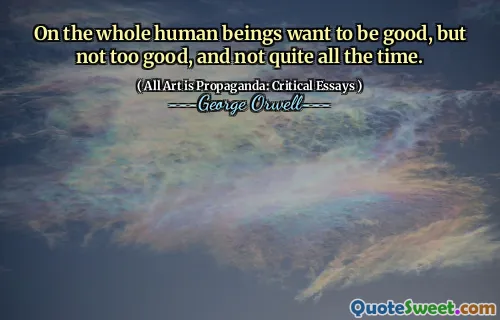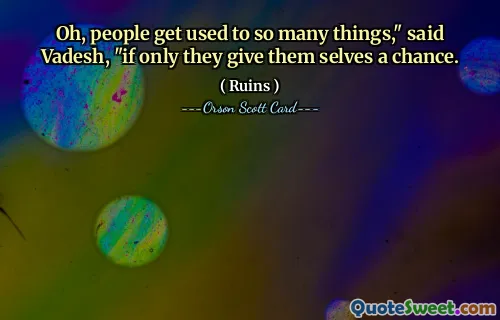
I wish I knew all the answers, how to be perfect, attractive and witty. But I'm just a human being with all the regular faults and it seems no matter how hard I try, I can't change that.
This quote touches on a universal truth about human imperfection and the often unrealistic expectations we place on ourselves. Many people yearn for perfection—whether it’s being attractive, witty, or having all the answers—yet few recognize that such aspirations can lead to frustration and feelings of inadequacy. The human condition is inherently flawed; our imperfections are what make us relatable and authentic. Embracing these faults, rather than fighting against them, can pave the way to greater self-acceptance and inner peace. The speaker's acknowledgment of their limitations highlights the importance of self-compassion. Instead of striving for unattainable perfection, understanding that our vulnerabilities and mistakes are intrinsic to our growth fosters resilience. This sentiment reminds us that mistakes do not diminish our worth; they are simply part of the human experience. Additionally, the idea encourages a shift in perspective—from constant self-criticism to self-appreciation—nurturing a healthier relationship with oneself. Ultimately, embracing imperfection is a pathway to genuine happiness and authenticity. Recognizing that nobody is perfect can be liberating, inspiring us to cherish our unique qualities and to practice kindness toward ourselves, especially during times of struggle or self-doubt. This perspective fosters a more compassionate worldview, one that embraces flaws as the natural elements of our humanity.



